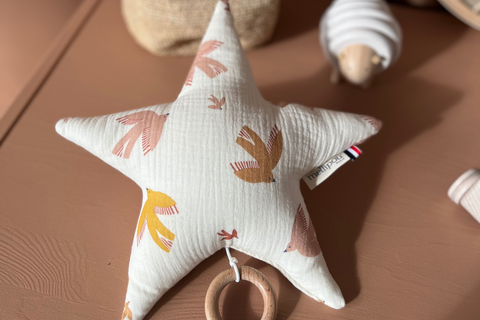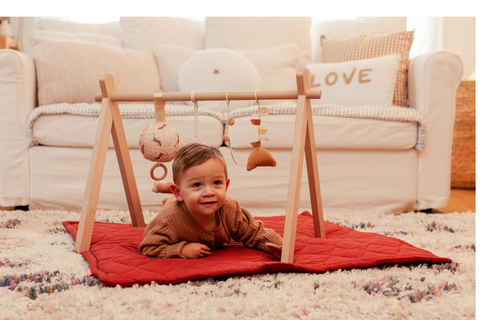As parents, we are always looking for ways to optimize our children's development. From reading to math to art activities, every learning opportunity is valuable. But what about the music? How can it contribute to the cognitive development of our little ones?
Music and memory
Music has a remarkable power on memory. Catchy melodies and catchy rhythms can help our children retain information more easily. For example, learning a song about the alphabet can make this often tedious task much more fun and effective. Learning through song can help you learn faster thanks to the rhythm of music.
Music and concentration
Imagine yourself in a quiet room, trying to concentrate on a difficult task. Now add a soft melody in the background. You suddenly feel more focused, don't you? The same goes for our children. Music can help them concentrate and stay attentive for longer , very practical when you want to do an activity with the little ones.
Music and creativity
Music encourages creativity in our children. By allowing them to explore different instruments, genres and musical styles, we stimulate their imagination and ability to think innovatively. Encourage them to play an instrument or compose their own songs to develop this valuable skill. During a creative activity, background music can stimulate your child , allowing him to concentrate on his task or, on the contrary, to release his creativity depending on the music chosen.
Music and emotions
Music has the power to arouse deep emotions in our children. From happy to sad to excited , different melodies and lyrics can help them express and understand their own emotions. By exposing them to a variety of musical styles, we help them develop their emotional intelligence. It allows them to develop empathy, but also to channel their own emotions. Music in the evening can help face the famous bedtime that some children dread. We recommend a musical night light that can comfort him in the evening, a soft light and a captivating lullaby, a great combo for going to dreamland.
Music and language
Finally, music is closely linked to language. Rhythm can encourage our children to recognize sound patterns in language, which can in turn improve their reading and writing skills . Singing songs and listening to stories with music are great ways to integrate music into their language learning. Music is a universal language that will allow you to communicate with your child without problem. Our musical soft toys are perfect for babies, to awaken their musical ear and subsequently allow them to develop their other senses.



